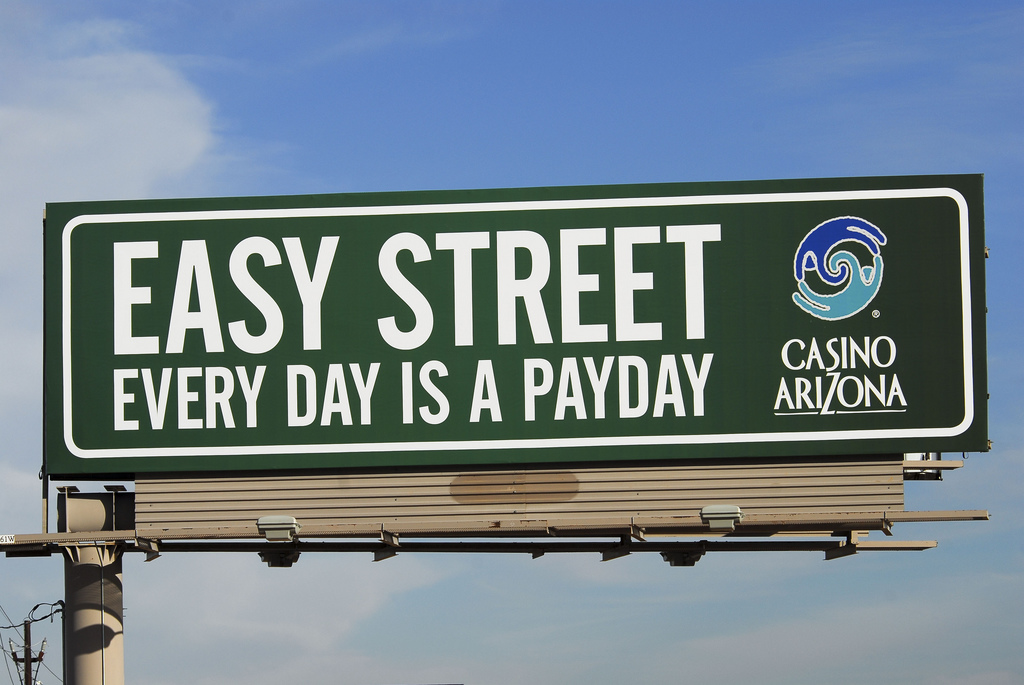Predatory gambling is when corporate gambling interests partner with government to cheat and exploit citizens. It ultimately forces the taxpayers who don’t gamble to foot the bill for the long-term public budget problems that result.
It’s a form of consumer financial fraud like price gouging and false advertising and it causes life-changing financial losses for tens of millions of citizens. Over the next eight years, the American people are on course to lose more than $1 trillion of their personal wealth to government-sanctioned gambling. At least half of this personal wealth – $500 billion – will be lost to state lotteries.
Predatory gambling is America’s biggest most-neglected problem.
The almost sole focus of state-sanctioned gambling has been to maximize profits, not protect the public interest. It’s exempt from truth-in-advertising laws, giving gambling corporations wide latitude to market gambling, grossly exaggerate chances of winning and aggressively lure citizens to lose their money.
Let people gamble if they want, some may say. But we already have the freedom to gamble. Up to now, many Americans participate in office pools for the Super Bowl, NCAA March Madness brackets, make casual wagers on the golf course with their friends, or play a Friday night poker game.
These informal events are examples of social gambling. There is no “house” skimming a large profit, guaranteeing the participant will inevitably lose over the long-term. No one is wagering continuously at rapid speeds of every five seconds, for hour after hour. Very few people feel an intense “buzz” or high from the experience. There’s no aggressive and deceptive marketing to get people to gamble more often with bigger sums of money. No one is lending or borrowing cash to participate or ends up losing their entire pay check. It doesn’t go on all day, every day of the week, year round. And it doesn’t require the majority of Americans who rarely gamble to subsidize it with any of their own money.
Without the legal, administrative, regulatory, and promotional privileges provided by state governments, lotteries, regional casinos and other commercialized gambling operators would not be spreading into mainstream American life as they are today. They would likely still exist only on the fringes of the society.

